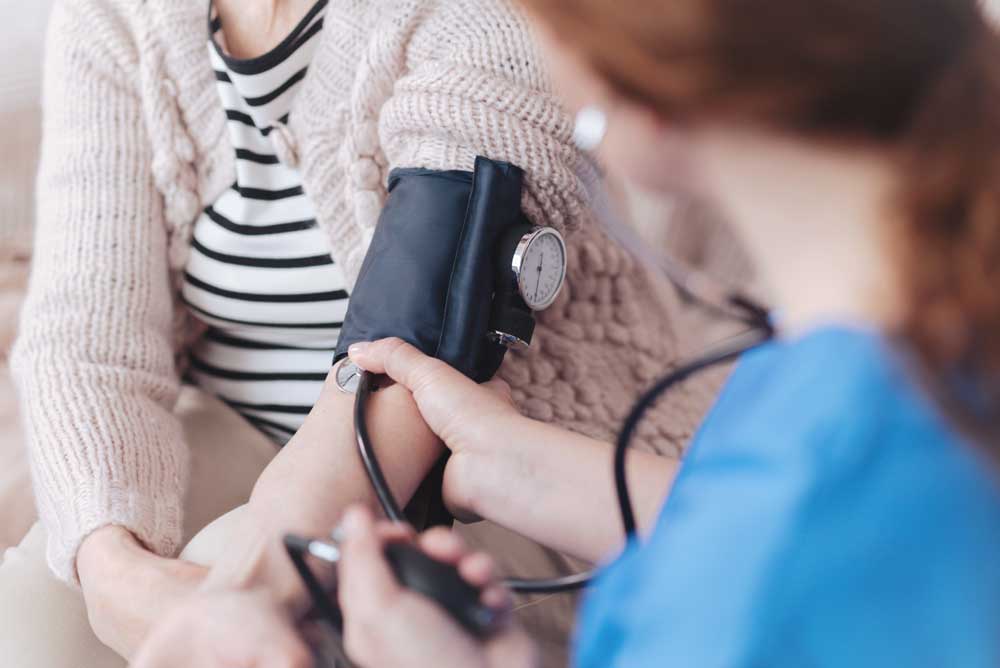Have you ever wondered what’s happening in your body when anxiety and stress are triggered?
Stress and Anxiety are “fight or flight” responses, which allow us to react faster and more appropriately, depending on the situation. These have been incorporated in us for centuries; they were part of what kept us alive in the face of various predators.
Today, however, we express these responses even though the “dangers” around us are entirely different. Sometimes, as in the case of anxiety, we just “assume” the “danger” and trigger this reaction, where many symptoms come to the surface.
Physiology behind Stress and Anxiety
Our brain controls many of our organism’s responses, voluntarily or involuntarily. In principle, we perceive the warning or danger signal, the initial trigger, where our brain understands that it must prepare the body to flee or fight quickly.
In order to do so, it acts through a system called the autonomic nervous system (ANS), to which it sends a signal. This ANS is in turn divided into sympathetic and parasympathetic, which regulate different responses.
The reactions that occur in stress and anxiety have to do with the release of important hormones (such as adrenaline and noradrenaline) by the sympathetic nervous system. These products travel through our body triggering a set of different reactions that will end up “activating” it.
Now, let us quickly analyze some of the effects of this hormone in the context of a real-life scenario: an imminent danger is coming towards you (for example, a person tries to grab your purse). In this case, your reaction might be to flee. What does your body need to respond appropriately?
1) Heart rate: It must be increased to enhance the oxygen and nutrients that reach your muscles and tissues to maintain the flight response.
2) Blood vessels: Pressure must increase in the arteries and veins to improve blood flow to the muscles. This vasoconstriction is the origin of headache under conditions of stress or anxiety.
3) Lungs: In order to give more oxygen to the blood and thus reach the lungs, the airways must be widened and the breath rate increased.
4) Sweating: This is not nervousness. Under this response, your body temperature increases to improve metabolic reactions and promote other biological reactions, all these to respond better to the “danger” that approaches. Sweating is a compensation mechanism for this increase in temperature.
5) Intestine: It is time to stop everything! It is not time to eat or digest; it is time to flee from danger. Therefore, the intestinal contents are stopped, through spasms, which can cause pain.
6) Kidney: In a fear-inducing emergency, the body produces less urine in order to preserve the liquids we have. The same goes for salivary glands. Our brain isn’t sure how long the danger will last, so it goes into conservation mode.
These, and many other responses are necessary to be able to “run away” properly, and all are mediated by the sympathetic nervous system. This is part of what you suffer when you are under stress or with anxiety. They are also limited responses that only last a few minutes – if the original “dangerous” stimulus disappears” – but that may remain a little longer in people who constantly suffer from it.
Since our body responds to perceived dangers (Ex.: Worried thoughts about what someone is thinking about you) in the same way as it does to genuine physical dangers (Ex. Rabid animal), it’s up to you to communicate with your body to assist it in deescalating the threat.
Tips for Finding the Off-Switch for Stress and Anxiety
Here are some quick tips for sending signals to your nervous system that will help it deescalate:
- Self-Talk: Identify the “danger” thought triggering your anxiety. See if you can talk it off the ledge. Right-size your anxiety by talking back to any over-generalization, catastrophization, mind-reading, or future-telling. Sometimes examining the facts can ease your anxiety (ex. Is the worst-case scenario really as bad as you imagine?).
- Diaphragmatic Breathing: Your body’s diaphragm is directly connected to the Vagus nerve, which helps regulate the on and off switch for your sympathetic nervous system. If you breath deeply using that muscle in your belly, you’ll notice your system start to slow.
- Channeling the Anxiety for the Power of Good: Anxiety gives you a big burst of energy, focused concentration, and drive. Why not use it to help you make a plan, research options, weigh pros/cons, or spur on action!
If you’d like help with stress or anxiety, a counselor with Star Meadow Counseling is available to help!
Would you like to read more of our blogs about anxiety? Check out one of the links below!

